10 hardest dog breeds to train
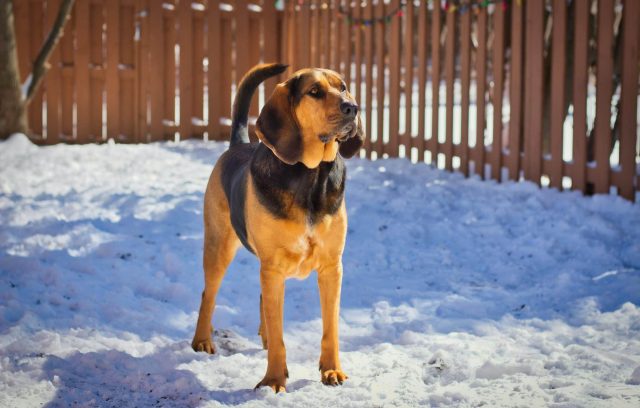
When it comes to dog training, not all breeds are created equal. Some breeds are very receptive to commands and eager to please their owners, while others are more independent and stubborn, making them more difficult to train. This doesn’t mean that these dogs aren’t intelligent or aren’t loving companions; it simply means that they require more patience, consistency, and understanding from their owners. These breeds often have a strong sense of independence and a mind of their own, making training more difficult. Here, we’ll explore the ten most difficult dog breeds to train, detailing why they can be difficult to train and what makes them unique.
10. Afghan Hound
Afghan Hounds are known for their majestic beauty and majestic appearance, but they are also one of the most difficult dog breeds to train. Originating in Afghanistan, these dogs were bred to hunt over rough terrain, giving them a strong independent streak. Afghan Hounds are intelligent but aloof and stubborn, preferring to do things their way. Their independence can make training difficult, as they do not naturally tend to please their owners. They require a patient, consistent, and gentle approach to training, with an emphasis on positive reinforcement. Afghan Hounds are loyal and affectionate to their families despite the challenges of training, making them valuable companions for those willing to invest the time and effort into their training.

9. Basenji Dog
The Basenji, often referred to as the “barkless dog” due to its unique yodel-like voice, is another breed that can be difficult to train. Originating in Africa, Basenjis were bred to hunt and have a high hunting instinct and an independent nature. These small to medium-sized dogs are intelligent and curious, but their strong personalities can make them resistant to training. Basenjis are known for their independence and may ignore commands if they do not see the benefit of following them. Consistency, patience, and a variety of positive reinforcement techniques are essential to training a Basenji. Despite their challenges, Basenjis are affectionate and playful with their families, and their unique behavior and characteristics make them appealing companions.
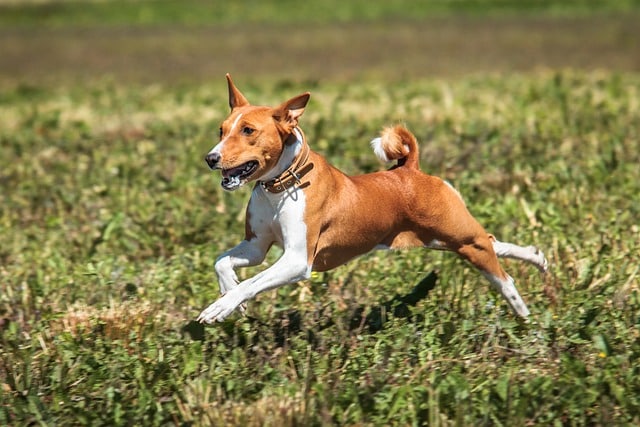
8. Bull Dog
Known for their distinctive wrinkled faces and stocky bodies, Bulldogs are lovable and gentle companions, but they can be stubborn and difficult to train. Originally bred for bullfighting, these dogs have a tenacious and determined nature. Bulldogs are known for their independent personalities and may require more time and patience when it comes to training. They respond best to positive reinforcement and short, consistent training sessions. While Bulldogs may not be the quickest learners, their affectionate and loyal nature makes them great family pets. Owners must be prepared to invest time and effort in training and socializing their Bulldogs to ensure they grow into well-behaved companions.

7. Chow Chow
The Chow Chow is known for its lion-like mane and aloof personality, making it one of the most difficult dog breeds to train. Originating in China, these dogs were bred for guarding and hunting, which has given them a strong independent streak. The Chow Chow is intelligent but can be stubborn and defiant, often preferring to do things their way. They need a patient and experienced owner who can train consistently and firmly without using harsh methods. Positive reinforcement and socialization from an early age are essential to training a Chow Chow. Despite the challenges of training, Chow Chows are loyal and protective of their families, making them excellent companions for those who understand their unique needs.
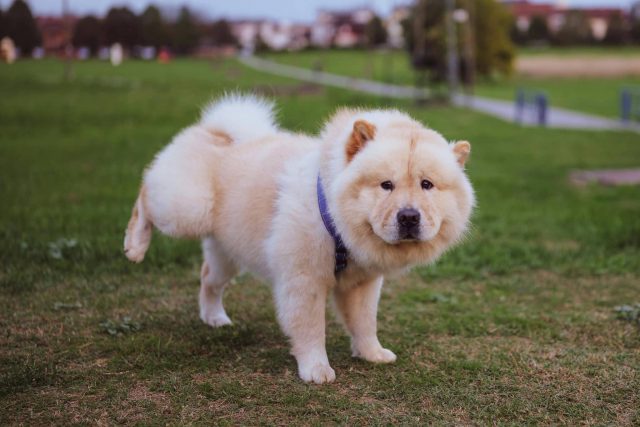
6. Borzoi Dog
Borzois, also known as Russian Wolfhounds, are elegant and graceful dogs with a reputation for being difficult to train. Borzois have a strong prey drive and an independent nature, having been bred to hunt and chase. These large dogs are intelligent but can be aloof and stubborn, often choosing to ignore commands if they do not see any benefit in following them. Training Borzois requires patience, consistency, and a gentle approach. Positive reinforcement and short, engaging training sessions are essential to keeping their attention. Despite the challenges of training, Borzois are gentle and affectionate with their families, making them valuable companions for those willing to invest the time and effort into the training process.
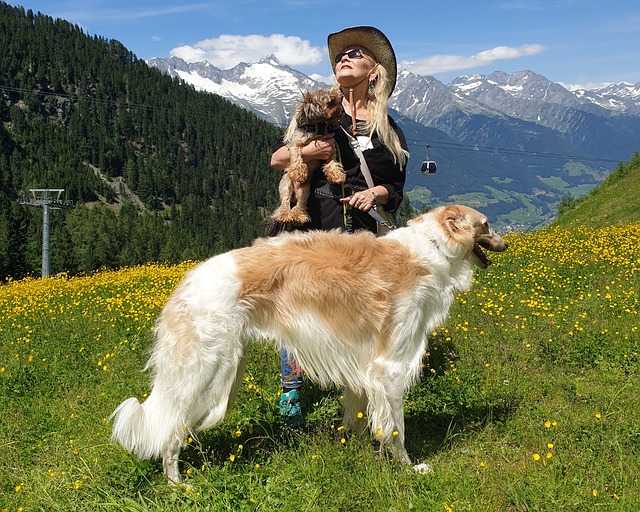
5. Hound
Bloodhounds are known for their exceptional sense of smell, but their independent nature can make training them difficult. Originally bred for tracking and hunting, Bloodhounds have a strong instinct for scent tracking, which can make them prone to distraction during training sessions. These large dogs are intelligent but can be stubborn and resistant to commands. Training a Bloodhound requires patience, consistency, and a firm but gentle approach. Positive reinforcement and scent-based activities can help keep their attention and make training more enjoyable. Bloodhounds are affectionate and loyal companions despite their challenges during training, and they are known for their gentle nature and excellent tracking abilities.

4. Pekingese
With their majestic appearance and confident demeanor, Pekingese are known to be difficult to train. Originally bred as companions for Chinese royalty, these small dogs are fiercely independent and tend to be stubborn. Pekingese are intelligent but can resist commands, often preferring to do things their own way. Training a Pekingese requires patience, consistency, and a gentle approach. Positive reinforcement and short, engaging training sessions are essential to keep their attention. Despite the challenges of training, Pekingese are loyal and affectionate companions, known for their bold and confident personalities.

3. Dalmatian
Known for their distinctive spotted coat, Dalmatians are intelligent and energetic dogs that can be difficult to train. Originally bred to guard and herd livestock, Dalmatians have strong independent personalities and high energy levels. These medium-sized dogs are intelligent but can be stubborn and easily distracted, making training difficult. Consistency, patience, and a variety of positive reinforcement techniques are essential to training a Dalmatian. They need plenty of exercise and mental stimulation to keep them occupied and prevent boredom. Despite the challenges of training, Dalmatians are loyal and affectionate companions known for their playful and outgoing personalities.
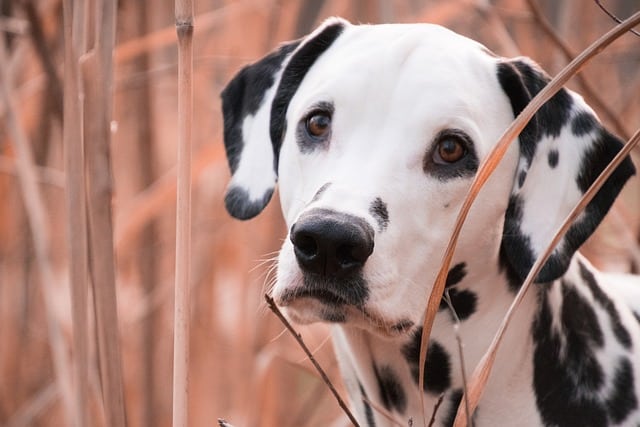
2. Jack Russell Terrier
Jack Russell Terriers are small, energetic dogs known for their intelligence and strong nature. Originally bred to hunt, these dogs have a strong hunting instinct and an independent temperament, making them difficult to train. Jack Russells are intelligent and quick learners, but can be stubborn and defiant of commands if they do not see the benefits of following them. Training a Jack Russell requires patience, consistency, and positive reinforcement techniques. They need plenty of exercise and mental stimulation to keep them occupied and avoid boredom. Despite the challenges of training, Jack Russells are loyal and affectionate companions known for their lively and playful personalities.
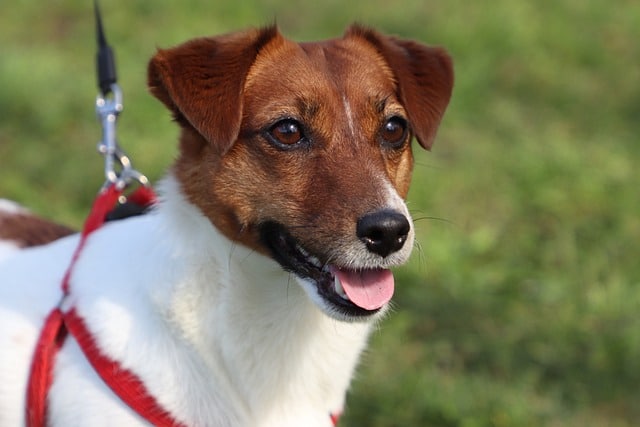
1. Afghan Hound
With their majestic beauty and majestic appearance, the Afghan Hound is considered one of the most difficult dog breeds to train. Originating in Afghanistan, these dogs were bred to hunt over rough terrain, giving them a strong independent streak. Afghan Hounds are intelligent but aloof and stubborn, preferring to do things their way. Their independence can make training difficult, as they do not naturally tend to please their owners. They require a patient, consistent, and gentle approach to training, with an emphasis on positive reinforcement. Afghan Hounds are loyal and affectionate to their families despite the challenges of training, making them valuable companions for those willing to invest the time and effort into their training.

In summary, although these breeds can be more challenging to train, each breed has its own unique qualities and characteristics that make them great companions. Patience, consistency, and a positive approach are essential to successfully training these breeds. Understanding their independent nature and working with that nature rather than against it can lead to a strong and rewarding bond between dog and owner. Despite the challenges of training, these dogs are affectionate, loyal, and capable of forming deep bonds with their families. For those willing to put in the time and effort, the rewards of training these breeds can be immense.




